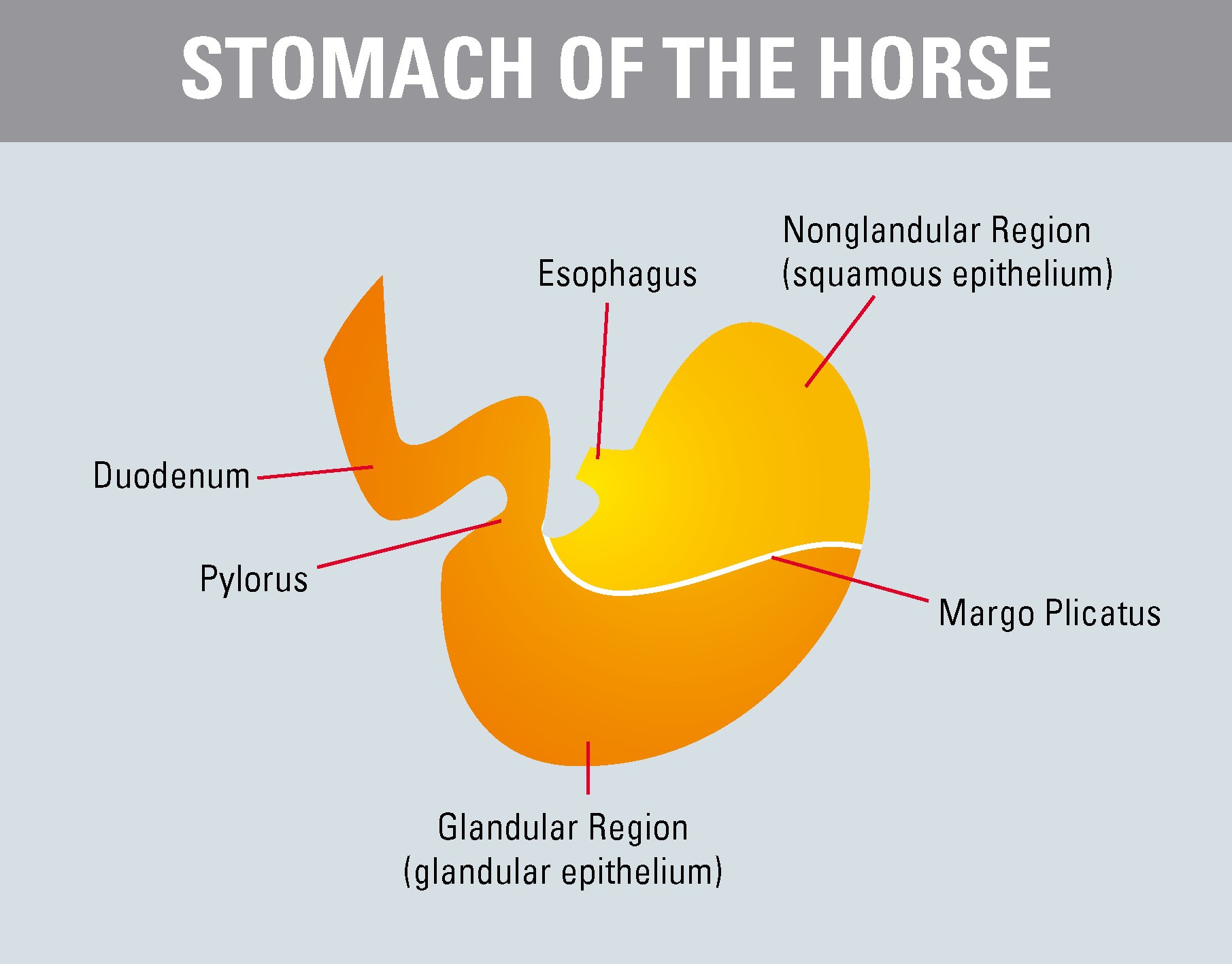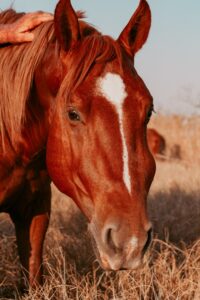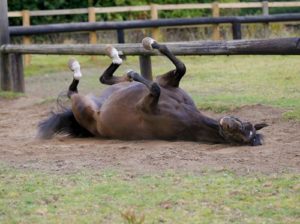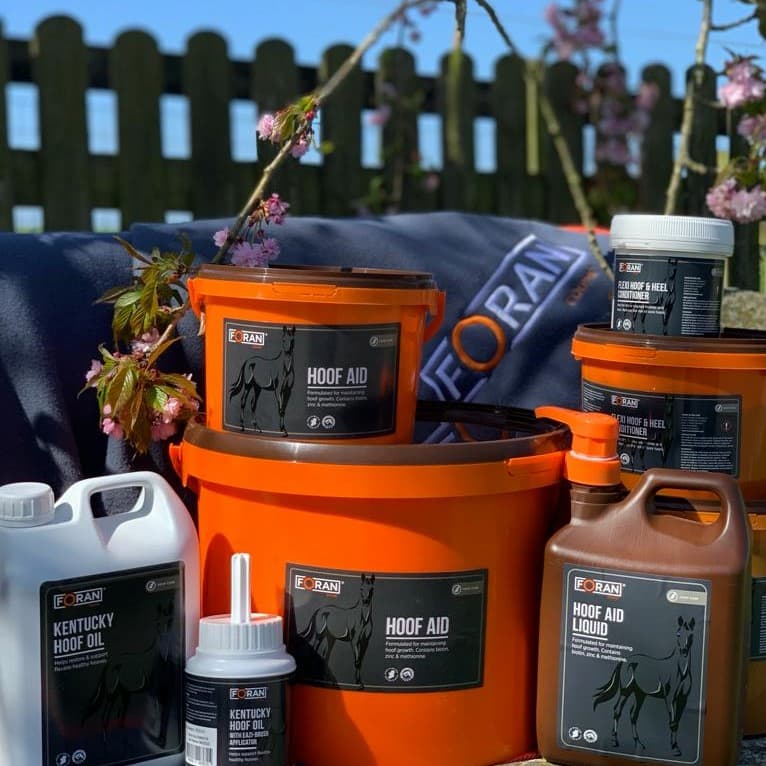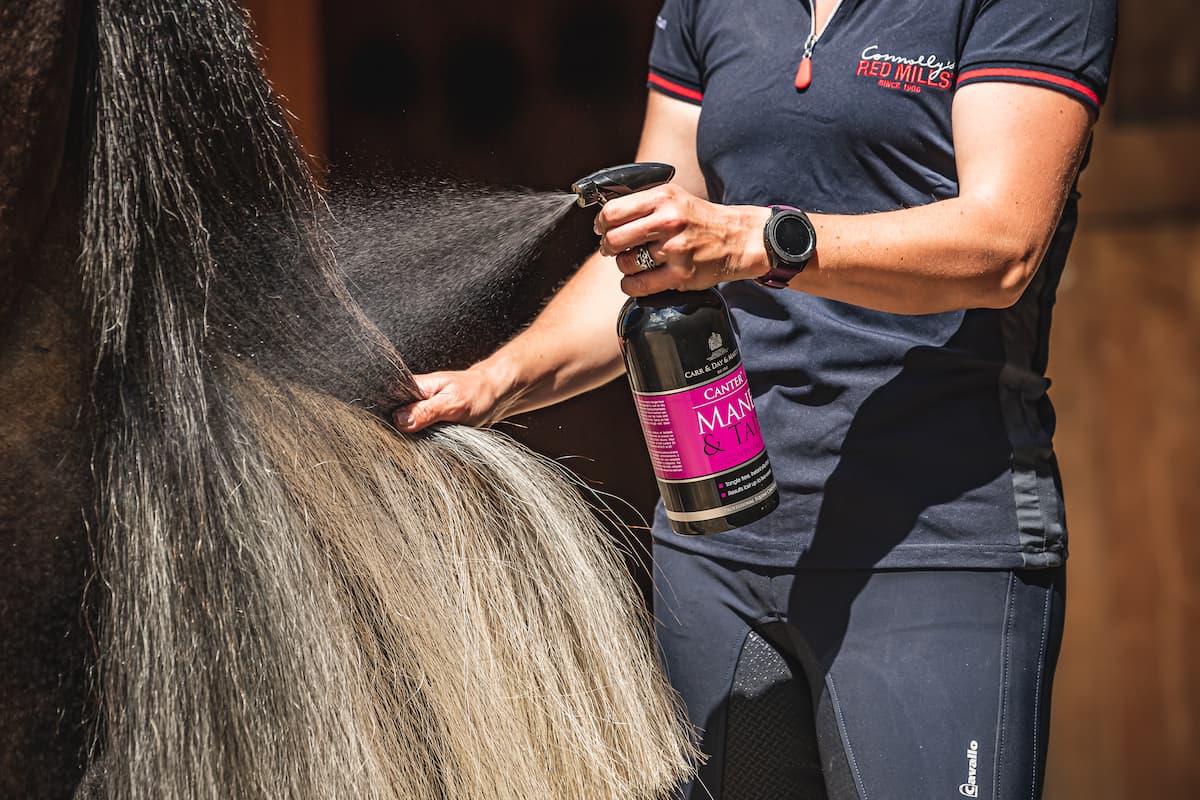Feb, 2017
Colic is a huge source of anxiety for horse owners. In Colic Part 1, we discussed the various types of colic including sand, spasmodic, gaseous and impaction colic. The key to keeping colic at bay is taking the right preventative measures. In this article, we discuss the most common feeding and management mistakes, and how to avoid them.
Reduced water intake
Insufficient water intake can increase the risk of impaction colic. All horses should have access to fresh, clean water at all times, with one exception. Horses that are very hot and sweaty after exercise should be allowed sufficient time to cool down before being offered water.
Like us, horses will drink more in hot weather, but in very cold weather water intake can be reduced.
Dehydration not only increases the risk of impaction colic but also affects athletic performance as water plays an essential role in muscle contraction and nerve function. Some horses can be particularly fussy about the taste of different water sources (e.g. when travelling or competing away from home) and it is not always practical to take your own water to an event. In these situations, try apple juice or apple cider vinegar in your horse’s water when they are at home and continue doing so when away, this will help to masks the taste and smell of unfamiliar water. When transporting your horse, it is also important to make regular ‘water stops’, at least every 4 hours, to help minimise the risk of dehydration. Other ways to help maintain hydration when travelling, or when at competitions, is to feed soaked hay, or haylage, and add a little water to the hard feed.
Lack of forage
Fibre or forage, which is fermented in the hindgut, should be the foundation of all horses’ diets. Fibre provide energy for the horse and is essential for normal gastrointestinal motility and function, the synthesis of B-vitamins and maintaining hydration status. Lack of fibre increases the risk of digestive disturbances such as gastric ulcers, diarrhoea or colic.
Ideally, forage (e.g. grass, hay or haylage) should be available ad lib, but if restricted, forage intake should not be less than 1.5% of bodyweight on a dry matter basis (i.e. 7.5 kg dry matter for a 500kg horse). If forage is not provided ad lib it is important that the daily ration is divided, so that the horse does not spend long periods (e.g. greater than 4 hours) without chewing.
Excessive indigestible forage
The digestibility of individual forages can vary enormously. Forages that are high in indigestible material such as old coarse hay or straw, and forages that have been chopped too short, may increase the risk of impaction colic.
Replacing small amounts of your hay or haylage with oat or barley straw to overweight horses is a useful way of controlling their calorie intake (without restricting their roughage), however we recommend that you speak to our Nutritional Team or your veterinary surgeon before adding large amounts of straw to your horse’s diet.
Abrupt dietary or management changes
Some horses may not react to sudden changes to their diet or management, whereas others may suffer severe gastrointestinal disturbances. This is because abrupt changes to a horse’s diet or management can upset the delicate balance of microflora in the intestinal tract, resulting in an increased risk of digestive problems, including colic.
Even something as simple as changing from one batch of hay or haylage to another can be sufficient to trigger an episode of colic in susceptible individuals. To be on the safe side, we recommend introducing any change to the horse’s diet or management slowly, over at least seven to ten days.
Excessively large concentrate meals
The horse’s digestive system is not designed to handle large concentrate meals. Relative to their body size, the horse’s stomach is small and makes up only 10% of the digestive system’s capacity. Feeding large meals can overwhelm the digestive capabilities of the stomach and small intestine, resulting in undigested cereals entering the hindgut. Here the cereals are fermented by lactic acid-producing microbes and this increased production of lactic acid causes a rapid decrease in the pH of the hindgut (i.e. the hindgut becomes more acidic). An acidic hindgut is an unfavourable environment for the beneficial microorganisms that inhabit the hindgut and are responsible for the fermentation of fibre, and high acid levels may also damage the intestinal mucosa.
Horses suffering from hindgut acidosis may exhibit several signs including weight loss, reduced appetite and/or reduced performance. Moreover, they will be at a higher than normal risk of problems such as colic and laminitis. To reduce the risk of undigested cereals entering the hindgut we recommend feeding no more than 400g/100kg bodyweight per meal. In practical terms, this means that a 500kg horse should not receive more that 2kg cereals per meal.
Unhygienic feed
Feeding unhygienic forage or feed may increase the risk of certain types of colic. There are several reasons why this may occur, for example, feed or forage that has been contaminated with gas-producing microbes may lead to increased gas production in the digestive system. In addition, unhygienic food could also contain substances, or microbes, that may impair or suppress the activity of the normal gut microflora. Any feed or forage that looks mouldy or smells abnormal should not be fed. To keep your feed and forage fresh it is important to store it away from vermin, moisture and extremes of temperature. You should have a hygiene protocol in place for your feed room including regular cleaning and disinfecting of feed bins and buckets.
Feeding uncooked cereals
Normally, concentrates containing starch are enzymatically digested and absorbed in the small intestine. However, both the source of starch fed and the processing it has undergone influence the rate and extent of digestion.
The architecture of starch granules differs depending on the sources of starch and this affects its pre-ceacal digestibility (i.e. how much is digested in the small intestine). For example, uncooked oats have a very high pre-ceacal digestibility and are safe to feed to horses. On the other hand, the pre-ceacal digestibility of uncooked maize is only 60-70%. This means that the remaining 30-40% enters the large intestine and, as discussed above, this may result in hindgut acidosis.
Cooking and physically processing cereals such as maize and barley increases their pre-caecal digestibility. This is because during cooking heat and pressure help breakdown the complex carbohydrate bonds in the grain starch, a process known as gelatinization. In addition, physical processing (e.g. flaking) helps to expose the starch granule so that the enzymes in the horse’s gastrointestinal tract can breakdown the starch more efficiently.
At Connolly’s Red Mills, we use a combination of steam flaking, double pelleting and steam extrusion to cook our cereals up to a gelatinization of 84%, thereby ensures maximum nutritional value, palatability and digestibility.
Inadequate chewing
Inadequate chewing can occur for a number of reasons and can increase the risk of problems such as choke or colic. Insufficient chewing is a particular concern for elderly horses, who are more likely to suffer from an age related deterioration in dental health. Insufficient chewing can also be an issue for greedy horses who tend to bolt their feed or in situations where a horse has not had access to food for an extended period and consequently is very hungry. Feeding a little forage prior to a concentrate meal can help to slow down the intake of the hard feed by providing a degree of satiety. Similarly, provided the horse’s dental health allows, adding some chaff to the feed may help to slow down feed intake and encourage chewing.
Prevention is always better than cure and in many cases, colic is largely preventable. Following the tips above will help to maintain the health of your horse’s digestive system and minimise the risk of colic. However, if your horse shows any signs of colic you should seek veterinarian advice immediately.
Contact our sales team via WhatsApp or email

Nicolas Gaumerais
Group Commercial Manager GCC Region
Based in the UAE, Nicolas Gaumerais is the Commercial Manager of Connolly's RED MILLS Group which includes Connolly's RED MILLS horse feeds and Foran Equine supplements sold in the GCC region. Nicholas regularly travels across the Gulf to meet customers.

Dominic Bligh
Group Commercial and Technical Executive GCC Region
Alternatively, reach out to Dominic Bligh who offers nutritional & technical support for Connolly's REDMILLS Feed and Foran Equine supplements. Dominic is also the Commercial Manager for Foran Equine Supplements. He regularly visits client's stables in the Middle East to advise on bespoke feeding programmes.

